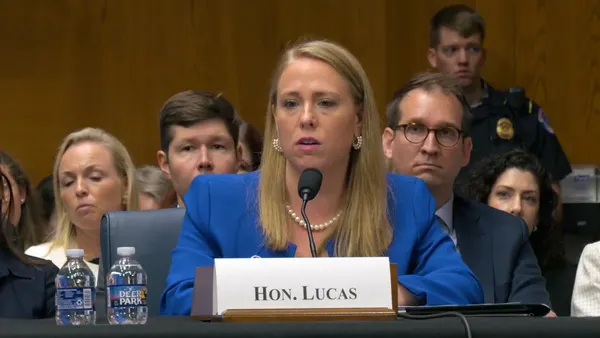Dive Brief:
- Walmart failed to dismiss a former personal shopper’s claim that the retailer failed to accommodate her disability after she sustained injuries in a non-work-related accident, thereby violating the Americans with Disabilities Act and Connecticut state laws, a federal judge held Wednesday.
- Per the decision in Murray v. Wal-Mart Stores East, LP, the plaintiff’s injuries required surgery, for which Walmart granted unpaid leave. She returned to work and was assigned to the store’s photo desk due to weightlifting limitations before resuming normal duties. Shortly after this period, a non-work-related concussion caused the plaintiff to miss work.
- The plaintiff had run out of accrued sick and vacation time but nonetheless asked Walmart to excuse the concussion-related absences. Walmart allegedly refused to do so and fired her because she had accumulated too many absences. She alleged disability discrimination, failure to accommodate and retaliation. The judge denied Walmart’s motion for summary judgment on all claims.
Dive Insight:
The case is one of many to center on the question of when and how an employer becomes aware of an employee’s need for reasonable accommodation. Under the ADA, employers may not discriminate against employees who are qualified to perform their job’s essential functions with or without such an accommodation.
An individual’s request for an accommodation is the first step in an “informal, interactive process” by which an employee and employer determine a reasonable accommodation, the U.S. Equal Employment Opportunity Commission has said. But the agency also notes that an employee need not mention the ADA specifically or use the phrase “reasonable accommodation.”
In Murray, the plaintiff claimed that she made such a request via text messages with her supervisor and later directly asked a store manager that three absences linked to the concussion be forgiven. The court concluded that while the former may not suffice as notice to Walmart of her need for an accommodation, the latter may have.
The court added that a genuine dispute of fact existed as to whether the communications with the store manager constituted a formal request. The manager claimed that the plaintiff did not mention requiring an accommodation due to an injury or concussion, whereas the plaintiff alleged she did mention that the days were used to go to the hospital and that she had been “out for the concussion.”
“Viewing the evidence in the light most favorable to Plaintiff, a reasonable jury could conclude that Plaintiff made a request for a reasonable accommodation of her alleged disability that was rejected by Defendant, when it decided to terminate her employment instead of forgiving the concussion-related absences,” the court said.
A portion of the analysis also discussed the availability of unpaid leave as a reasonable accommodation under the ADA. While EEOC has recognized use of additional unpaid leave as a potentially reasonable accommodation, courts have held in favor of employers in situations where employees cannot provide a sufficiently specific return date from leave or are unable to provide a return date at all.
Walmart has faced this question in court previously, including in one 2023 case wherein EEOC alleged that the chain did not provide intermittent leave as an accommodation to an employee who suffered from seizures. Walmart entered into a consent decree with EEOC in order to dismiss the lawsuit.














